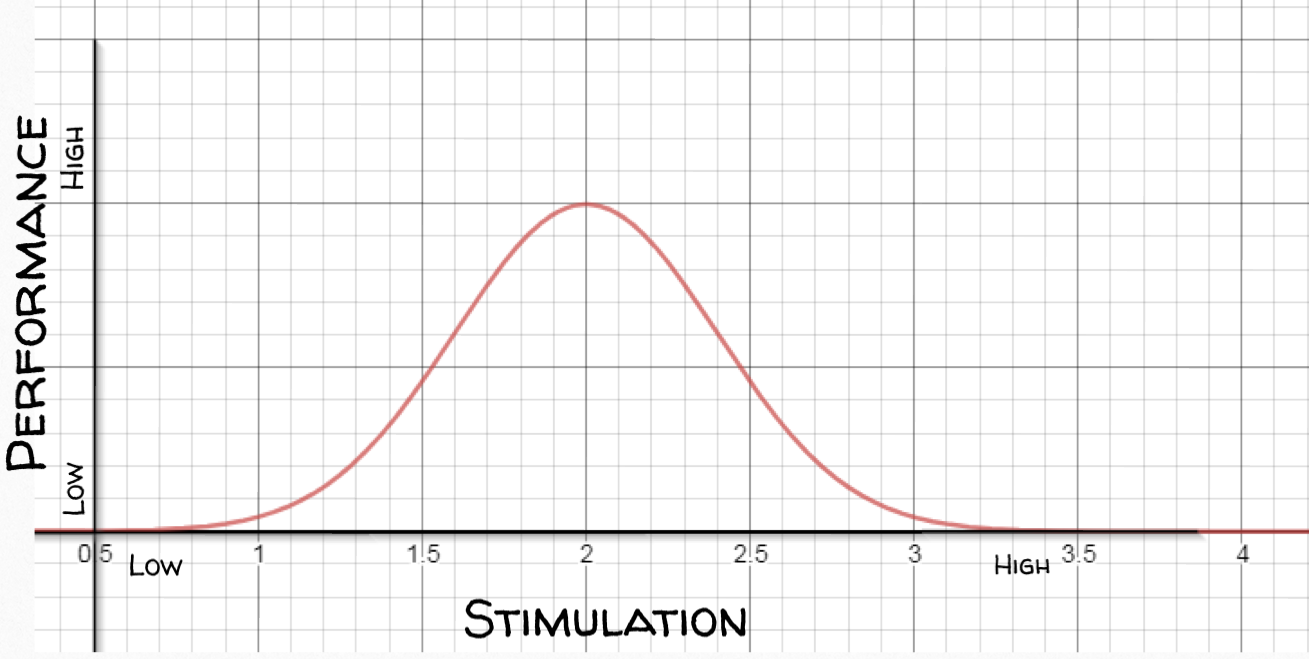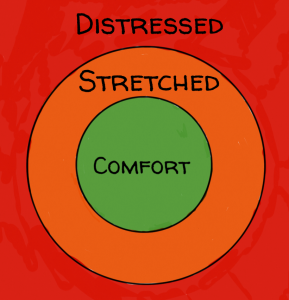With my interest in human psychology, I recently came across the Yerkes-Dodson Law. The Yerkes-Dodson law is not new. It was originally developed by psychologists Robert Yerkes and John Dodson way back in 1908. This is an interesting theory. The law basically states that there is a relationship between the amount of mental stimulation one receives towards a task and their performance. If the level of mental stimulation is too low, then performance suffers. If the level of stimulation is too high, then performance also suffers. There is a middle ground where for the mental task, performance reaches its optimum point.
I have experienced this myself, where given a task that has no challenge, I am bored out of my mind and tend to take longer to do the task. I tend to find distractions. There is the other way too. If the task is too hard, over and above my current skill set, I get frustrated, I don’t give up, but I find the task difficult and thus I do not accomplish as much, but if the task is challenging enough and I make progress, even little progress, then my interest increases. My focus increases and I’m able to accomplish quite a bit. This state is known as Flow. Coined by Mihaly Csikzentmihaly where Flow is a mental state where time seems to stand still. Focus is at its optimum and the world seems to fade away and all that there is is what you are currently working on. This state is one that I call, in the Zone.
So how do you reach this optimal state, well, from what I understand, the subject needs to be put under a little stress. Now this seems bad, but there are actually 2 levels of stress.
Eustress, this is good stress. This is the stress that you feel when you feel challenged. Something that you have control over, something that stretches your mind. The other form of stress is Distress. This is the bad sort of stress. This is the stress that gives you a mental breakdown. The strange thing is that the body cannot tell good stress (Eustress) from bad stress (Distress), its all in our perception. It is also very subjective to a person. One situation, someone may take as a challenge, and feel good about the challenge. Another person in the same situation may feel overwhelmed, freak out and not know what to do. Think of your parents or grandparents and how stressed they get when confronted with a TV remote control with quite a few buttons. At least in my case, my Mother and Father who are both in their 80s could not turn on the TV via the remote just because by looking at the remote, they were overwhelmed. Then you have me who works in IT, sees a remote control with a lot of buttons and thinks nothing of it. I pretty much play with the buttons to see what happens. It is a minor challenge.
By putting the subject just outside their comfort zone, just adding a little stress – not too much, and time with no interruptions, the person can reach the state of flow at be at their peak performance. Maintaining this state is very difficult and exhausting, but it makes for a happier worker.
The problem is that the current workplace does not make for this state to happen easily. You can put on headphones, but even then there are constant distractions and interruptions, but if the team is aware of it, maybe they can do something about it.
So, are you challenged just enough to get into the Flow state?


